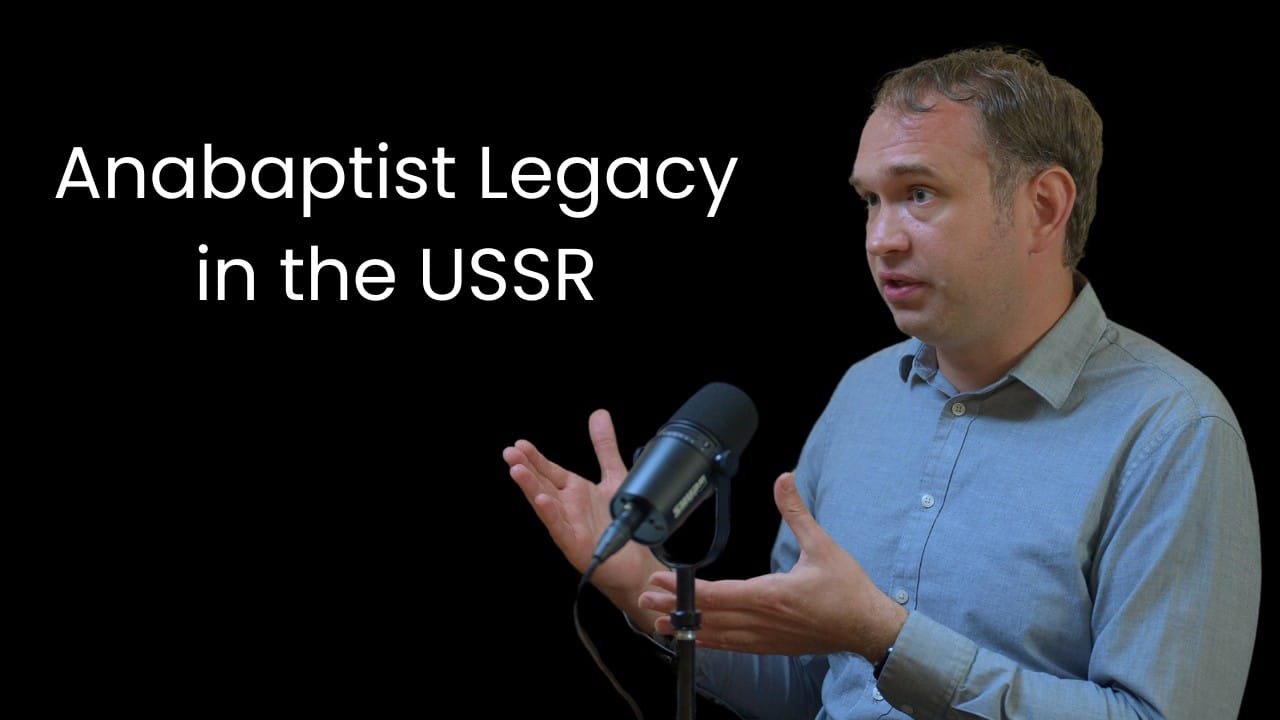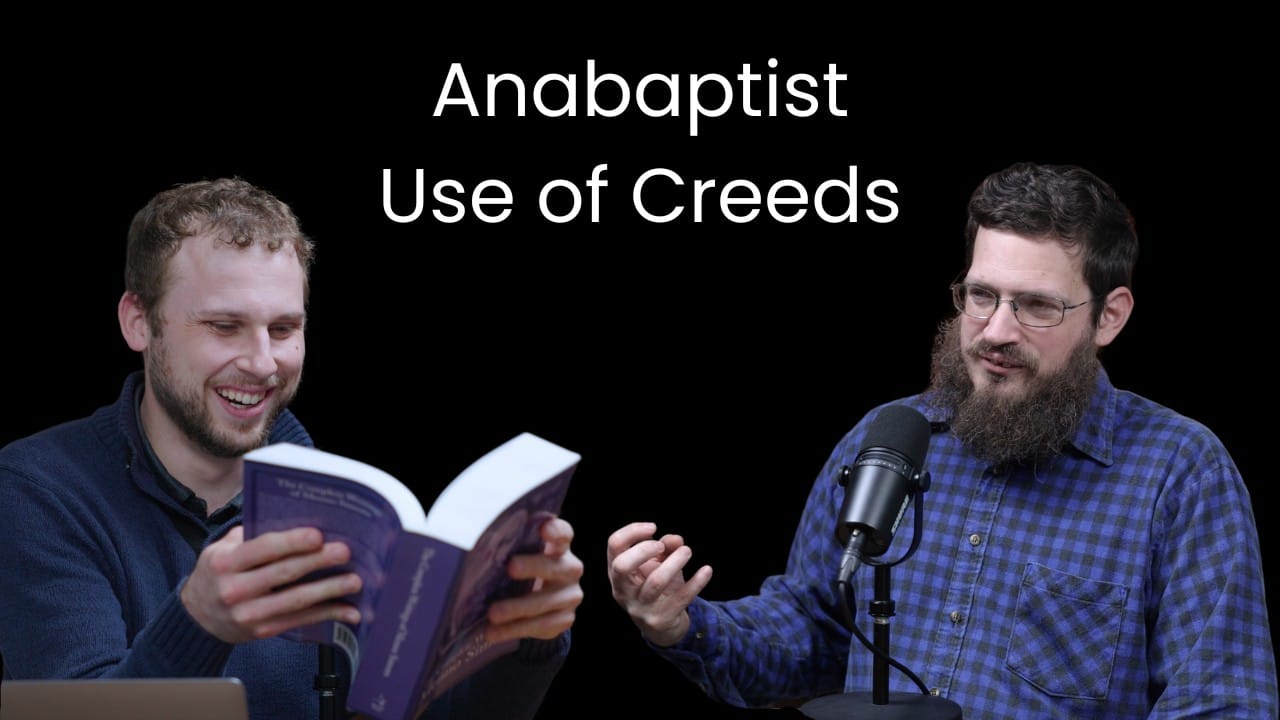PARTNER CONTENT
Episode
P104
Do We Need the “Church Fathers”?
October 31, 2025
Premium Content
This exclusive production from Anabaptist Perspectives is available to our valued partners.
Do We Need the “Church Fathers”?
Marlin and Jaran discuss what it means to pe participants in Christianity alongside believers of other times and places.
Jaran mentioned the Wesleyan Quadrilateral: Wesleyan Quadrilateral – Wikipedia
Here is the comment that was left on YouTube on our episode with Kyle Stoltzfus “ What to Do When We Disagree with a Church Father” https://youtu.be/HjBlr7ZaSdM
The central problem with this discussion is that it treats the so-called church fathers as if they are a necessary reference point for following Jesus. Their writings may provide insight into how some early believers navigated persecution, heresy, or cultural challenges, but they are never portrayed in Scripture as authoritative guides for the ekklesia. No New Testament writer directs disciples to future generations of theologians; they point only to Christ Himself, His Spirit, and His word. To elevate these men, even slightly, undermines the sufficiency of Scripture and the ongoing presence of the Spirit among the gathered believers. The repeated caution to respect the fathers “beneath the lordship of Jesus” is insufficient because it still presumes they hold some derived authority. In reality, they do not. They were neither prophets nor apostles. Their writings were often mixed with error—introducing hierarchical leadership, sacramentalism, and infant baptism long before such practices were questioned against the plumb line of Christ’s teachings. These corruptions eventually hardened into the Roman system the speaker acknowledges yet still romanticizes as a “less formalized” era. Regarding infant baptism, citing Chrysostom or Irenaeus proves nothing. Household baptisms in Acts never mention infants, and baptism in every New Testament account follows faith and repentance (Acts 2:38; Acts 8:36-37). The argument that collectivist culture justifies baptizing infants is irrelevant; culture never defines obedience—Jesus’ commands do. The early spread of infant baptism marks the drift away from the gospel’s personal call to faith, not a faithful application of it. On apostolic succession, the speaker rightly notes that Irenaeus’ context was not the later papal system, but then softens the issue. The New Testament knows no concept of unbroken lines of office-holders; succession in Scripture is of truth, not of titles. Paul told Timothy to entrust what he had heard to faithful men (2 Timothy 2:2), not to establish an enduring chain of bishops. To read later hierarchical claims back into Irenaeus or any other writer is anachronistic and unwarranted. The claim that we must read these fathers “in context” is often used to shield their errors from critique. Context is important, but the true measure is not their historical setting—it is whether their words align with Christ’s commands and the Spirit’s teaching in Scripture. When they do, they are useful; when they do not, they must be discarded. The Bereans were noble because they tested even an apostle’s teaching by the Scriptures (Acts 17:11). How much more should we test uninspired men? Finally, the encouragement to read the fathers to “honor Jesus” is misguided. We honor Jesus by hearing Him (Matthew 17:5). The impulse to mine these writings for support in doctrinal disputes often results in elevating tradition alongside or above Scripture. This is precisely what Jesus rebuked in the Pharisees (Mark 7:6-9). The ekklesia needs no secondary canon; Christ has given everything necessary for life and godliness (2 Peter 1:3).
Episode Guest Info
Marlin Sommers
Marlin lives in Southeast TN. He is married to Meredith and father to Zadok, Katherine, Job, Jude, and Charis. He is a philosopher and carpenter by training and currently serves with Anabaptist Perspectives and Starr Mountain Academy. The tagline for the latter organization expresses what he wants to be and wants to help others be: a worshipful knower and servant king.
Read MoreEpisode Host
Jaran Miller
Jaran Miller is a resident of Pennsylvania and a native of Tennessee. He received his K-12 education via homeschool, his college education at Lee University, and his most important education through the books he’s read and the human relationships he’s been privileged to have. Jaran enjoys living with his wife Sara. Together they engage in pursuits like playing the piano, reading books, and developing hospitality skills.
Read MoreRelated Content
“Using digital media to encourage allegiance to Jesus’ sacrificial kingdom.”








Leave a Reply